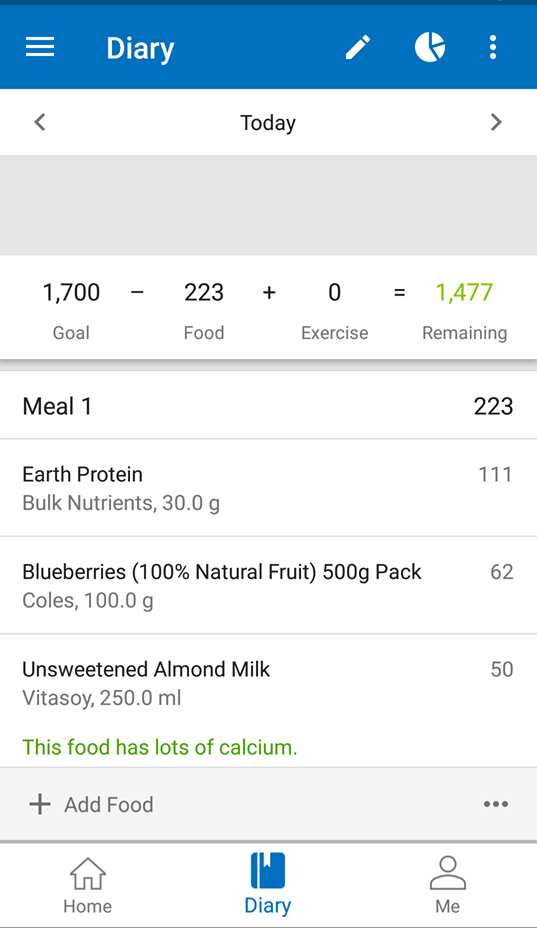Calorie Balance - The Key Diet Success Factor

What is Balorie Balance?
Calorie balance is the ratio between calories taken in from food and calories expended through exercise or activity. If your calorie balance is in deficit, you will lose weight (fat loss), whilst a surplus calorie balance will result in weight gain (muscle gain).
Whilst calorie balance is a simple and universal concept, far too many people pay ‘lip service’ to it and instead jump between each new fashionable diet trend to achieve results.
Here’s an important point to note when it comes to fad diets. It really doesn’t matter if your diet preference is paleo, keto, clean-eating, low-sugar etc because they all work to produce fat loss or muscle gain from the application of the calorie balance principle (usually calorie deficit).
Whilst other nutritional factors can impact your fat loss or muscle gain progress (e.g. specific amounts of carbs/fats/proteins, nutrient timing, food composition, supplements), calorie balance has by far the largest effect on the outcome. It has been proven time and time again to be the most important nutritional tool for effective fat loss/muscle gain.
Calorie balance is key to reaching your goal whether that be fat loss or muscle gain
How to determine calorie balance for your goals
You can use a range of mathematical formulas developed from nutritional research to determine calorie balance. The more personal data you have, particularly weight/body fat percentage, generally the more accurate the prediction.
I personally have found the Katch-McKardle formula very effective; you can access it in an online calculator here.
How to apply your calorie balance
Once you know your estimated calorie balance for your specific goal, the next step is practically applying it to your daily eating. This means you need to track the calories you consume by measuring/weighing your food and logging it in a calorie-counting app such as MyFitnessPal.
Many people still totally ignore this aspect or rather simply refuse to do it due to its perceived difficulty and tediousness. Guess what? It is somewhat difficult and tedious initially, but if you’re not tracking your food, you may as well be guessing!
Research studies consistently find that people dramatically underestimate their calorie intake when their food is not weighed/measured, leading to massively incorrect calorie balances and a failure to achieve their goals.
By weighing your food and tracking your intake, you take the guesswork out and create gold standard accountability to get your calorie balance right. Whilst it is a bit of a tedious process most people find they regularly eat the same foods, so after a couple of weeks of consistent tracking, the process becomes rather easy.

Invest in your goal
Ask yourself this question: Do you want to just feel like you are doing something good for yourself or do you actually want to change your body and achieve results?
If the answer is yes, then get serious by determining your calorie balance for your desired goal (muscle gain or fat loss) and then start weighing/tracking your food. Try this process consistently for a month and you may well be amazed at the results!
References:
- BROWN, R., CANNING, K., FUNG, M., JIANDANI, D., RIDDELL, M., MACPHERSON, A. and KUK, J., 2016. Calorie Estimation in Adults Differing in Body Weight Class and Weight Loss Status. Medicine & Science in Sports & Exercise, [online] 48(3), pp.521-526. Available at: <https://pubmed.ncbi.nlm.nih.gov/26469988/>.
- Patel, K., 2021. What should you eat for weight loss?. [online] Examine.com. Available at: <https://examine.com/articles/what-should-you-eat-for-weight-loss/>.
- Examine.com. 2021. Protein Intake Calculator. [online] Available at: <https://examine.com/guides/protein-intake/>.
Related Blogs

Low-Calorie Protein Pancakes
Posted by Bulk Nutrients
Recipe difficulty: Easy

Low Calorie Treats to Keep You on Track During Weight Loss
Posted by Dayne Hudson
Estimated reading time: 5 minutes

How to Calculate Your Calorie Deficit for Fat Loss
Posted by Dayne Hudson
Estimated reading time: 7 minutes




























